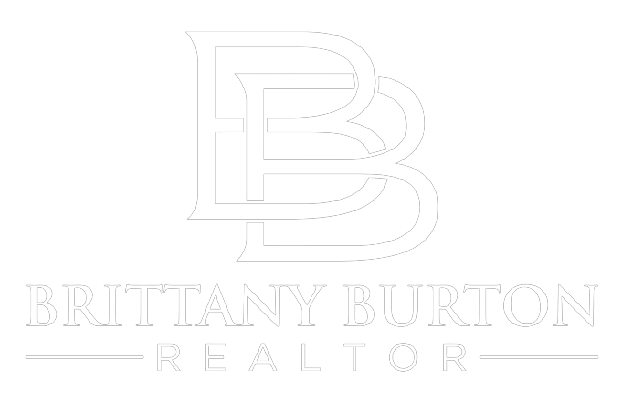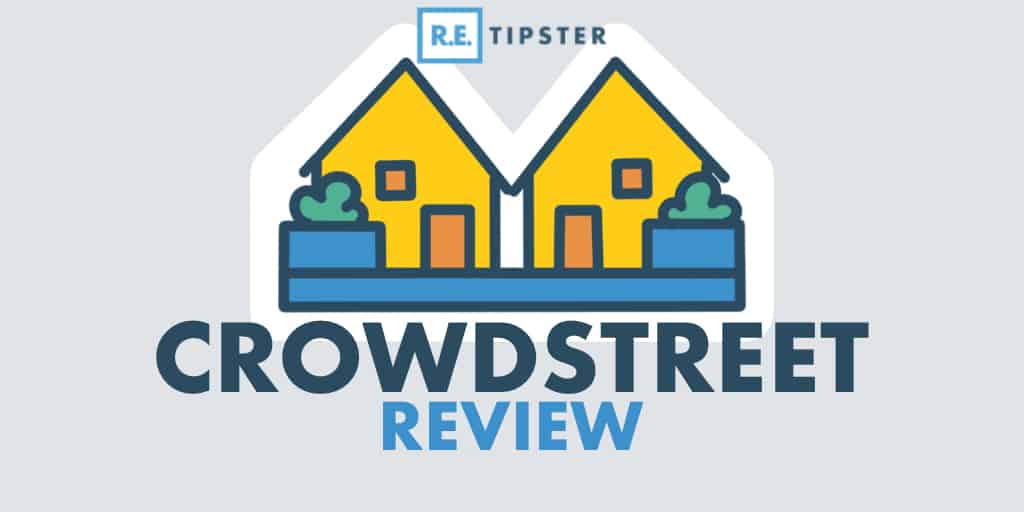Among the earliest real estate crowdfunding platforms, CrowdStreet has built a strong name in the industry.
Thank you for reading this post, don't forget to subscribe!But how is the reality of investing crowdstreet stand up to its reputation?
Overall, CrowdStreet has a lot of advantages. But its high minimum investment and availability only to accredited investors put it out of reach for most investors.
CrowdStreet Review
Summary
CrowdStreet offers a transparent history of high returns with multiple investment options. But the minimum investment is not trivial at $25,000, and only accredited investors can participate.
Get started with CrowdStreet!
pros
- high historical returns
- transparency
- set the stage
- Quantity and variety of options
- control
- custom managed accounts
- Education
Shortcoming
- Accredited Investors Only
- high minimum investment
- poor liquidity
- significant risk
What is CrowdStreet?
CrowdStreet describes itself as “the nation’s largest online private equity real estate investment platform.”
Through its marketplace, you can invest in individual properties, funds or REITs. Alternatively, you can pay an advisory fee for a privately managed account, where CrowdStreet picks and chooses investments for you.
The marketplace offers an impressive range of property options. Over its history, CrowdStreet has funded over 700 deals and counting. These include every imaginable type of real property from commercial to industrial to agricultural and beyond.
However, at any point of time, you may see five to ten property deals and few funds available.
How CrowdStreet Works
You choose any asset or fund of your choice and invest a minimum of $25,000 in each. Expect to put up your money for at least three years, as most projects take at least that long to complete and sell.
Sponsors bring deals to CrowdStreet for wider exposure to help raise money for the larger deals. CrowdStreet charges these sponsors a fee for access to its platform, although it generally does not charge investors.
But this does not mean that sponsors do not collect their fees from passive investors.
CrowdStreet claims that it rejects 95% of deals that are brought in by sponsors. This aggressive underwriting helps eliminate all but the most promising deals.
Which doesn’t mean that deals on the CrowdStreet platform have never lost money. Some even include a handful of projects with near 100% losses.
Still, CrowdStreet says the average internal rate of return (IRR) on completed deals is an impressive 18.8%. It’s nothing to sneeze at, roughly double the historical average stock market return of around 10%.
CrowdStreet Pros
While it’s hard to say whether or not CrowdStreet is truly the “largest online private equity real estate investment platform,” it could honestly make a lot of other claims.
Here are some reasons to invest in CrowdStreet.
high historical returns
Through the end of 2022, CrowdStreet projects an average return of around 19% to passive investors. This includes an average equity multiple of 1.55x over an average investment holding period of 3.0 years.
Those returns reflect not just a handful of deals. CrowdStreet has overseen 153 deals through the full cycle of 709 deals completed on its platform.
For more information on the results of their past deals, visit CrowdStreets. market performance Page.
transparency
How do we know all that?
Because CrowdStreet publishes it on its website and is not hidden behind a login gateway, anyone can view it publicly on the web.
Sure, averages are impressive, so there’s a reason not to publish them. But the website also has an interactive dot plot that shows the returns and hold periods of each deal that has gone full cycle on its platform. These include deals in which money is lost (in some cases, 100% of investors’ money).
I wish every real estate crowdfunding platform was this transparent.
set the stage
CrowdStreet is one of the oldest real estate crowdfunding platforms, available since 2013.
This puts it in the same ballpark as Fundrise (2010), RealtyMogul (2013), Groundfloor (2013) and YieldStreet.
Quantity and variety of options
With $4 billion raised for 709 deals at the time of this writing, CrowdStreet has a justifiable claim to be the largest private equity real estate platform.
To start with, CrowdStreet has deals in over 250 cities. Even more impressively, its past deals include multifamily, single-family, office buildings, coworking space, industrial, hospitality, student housing, senior housing, retail, mixed-use, self-storage facilities, cannabis, charter schools, bank notes , Medicine included. space, veterinary, manufactured housing, build-to-rent, parking and raw land.
control
You can pick and choose any deal to invest in on CrowdStreet.
And you do so with detailed financial information on each deal, sponsor, business plan, and real estate market. CrowdStreet makes sure that you never lack the details of any potential investment.
custom managed accounts
If you have at least $250,000 to invest, you can pay CrowdStreet an advisory fee to develop one. customized investment plan for you and your financial needs.
You get a dedicated investment advisor and a custom real estate investment portfolio. But this gives you an advisory fee of between 2% to 2.5% in the first year and 0.25% annually thereafter.
Education
Like most real estate crowdfunding platforms, CrowdStreet offers a wealth of educational material for free. After all, it makes for good content marketing and SEO!
Still, you can learn the methods of commercial real estate investing for free. CrowdStreet’s Quick Start Guideblog, or often Webinars and Online Events,
CrowdStreet Cons
For all those upsides, CrowdStreet comes with its fair share of limitations. Keep the following points in mind when you are considering investing.
Accredited Investors Only
Only about 10% of American adults qualify as accredited investors. This leaves the other 90% of Americans unable to invest in CrowdStreet.
If you are not an accredited investor then none of the pros or cons matter. You can’t get a go pass in CrowdStreet and invest $200 (or rather $25,000).
high minimum investment
You may not want to invest $25,000 in personal real estate investing even if you are an accredited investor.
When each asset requires 25 grand, it becomes difficult to diversify your investment portfolio. You don’t even have the chance to start with a small investment and grow comfortably with the platform.
That said, you can invest in their funds for wider diversification, albeit with less control over your investments.
poor liquidity
Once you invest, you are committed. You cannot sell or redeem your investments early.
These investments typically last for three to five years, sometimes even more. They do not offer any kind of liquidity. Do not invest any kind of money which you may need in the near future.
significant risk
Consider these commercial real estate investments with moderate to high risk depending on the investment.
Out of 153 deals that went through the entire cycle, 11 have lost money. Six of them lost 100% of investors’ capital, not just a few percent.
Some projects carry more risk than others. Before investing thousands of dollars in commercial real estate deals, make sure you understand how to vet commercial real estate deals.
How does CrowdStreet compare?
At the risk of stating the obvious, CrowdStreet targets a wealthier clientele than most crowdfunding platforms. While other platforms like Fundraise, Groundfloor and Concrete let you start investing with as little as $10, you can’t walk through the proverbial door on CrowdStreet with less than $25,000.
This can make diversification a challenge, although their funds help you avoid that problem. If you choose that route, you lose control of your investments.
Speaking of which, CrowdStreet offers more options than most real estate crowdfunding platforms. Sure, you can expect only a few property deals at any given time. But come back next week, and it likely has new deals available for you.
And wow, has it offered so many different types of deals over the years. From student to senior housing, storage to mobile homes, land built homes, and of course, traditional multifamily and office buildings, you can find every type of real estate investment under the sun on CrowdStreet.
However, most competitors offer some sort of early redemption option. Granted, many charge hefty fees for the privilege of selling early, but at least the option is on the table.
For other crowdfunding platforms specializing in commercial real estate for accredited investors, see our review of Fundrise and their higher-end offerings or EquityMultiple’s investment options. The latter lets you invest in commercial properties with as little as $5,000 – still not a trivial amount, but a fraction of CrowdStreet’s minimum.
final thoughts
Wealthy investors looking to access real estate syndication through a reputable, transparent platform will find a warm welcome at CrowdStreet.
You can expect high potential returns at moderate risk, a compromise worth making for many investors. And the better you understand the underwriting of commercial real estate deals, the more you can mitigate those risks.
Most of the deals that lost 100% of investors’ returns were high-risk hotel deals that collapsed during the COVID-19 pandemic. Fortunately, the average real estate deal doesn’t come with that risk.
Still, when you’re investing five figures, it helps to have some expertise in real estate. Novices should proceed with caution, no matter how high your net worth.








